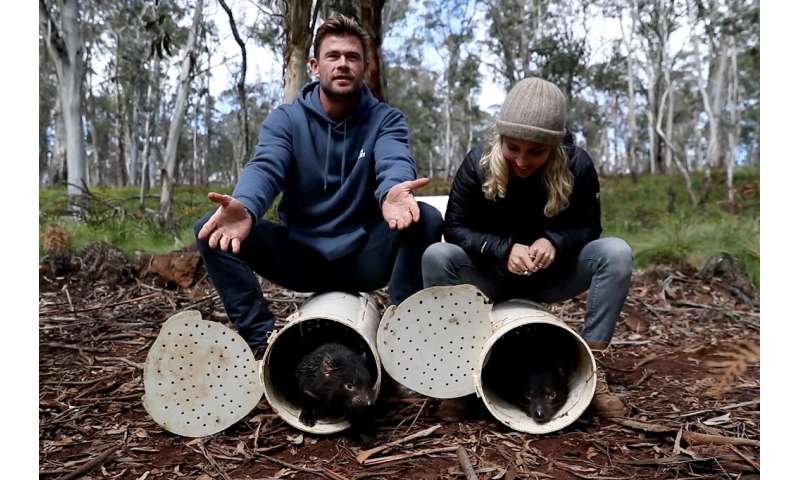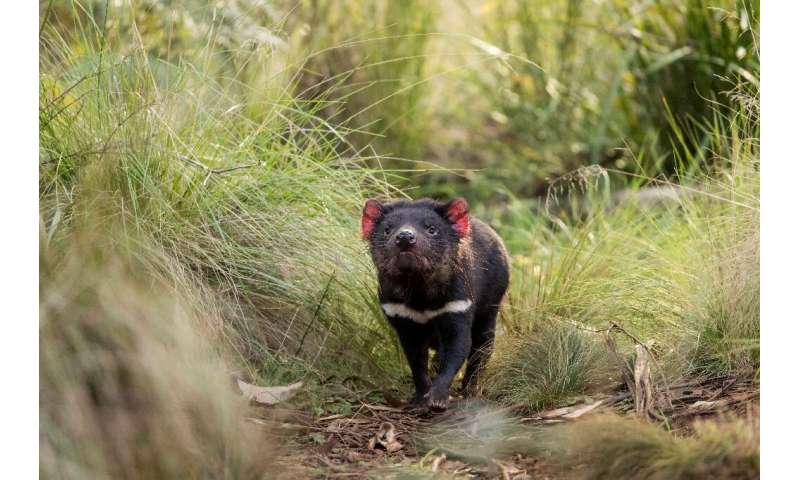Waves of protests against racism have spread globally in 2020. Sparked by police killings in the US, the movement has forced a conversation about racial inequality, representation, and colonialism into the public debate. Green parties are vocal advocates of racial justice, but does the rhetoric match the reality? Samir Jeraj spoke to Green activists of colour from across Europe to hear their perspectives on what Green parties need to do to build racial justice in the years and decades to come.
The death of George Floyd in Minneapolis in May, compounded by the rising number of deaths of people of colour from Covid-19, led to “Black Lives Matter” being echoed around the world. There has been a reckoning for many communities and institutions on their past and present actions on racism. Statues have fallen, experiences of racism in every organisation, profession and community have been shared. It remains to be seen whether there will be lasting change.
Green parties have traditionally been defenders of liberal values of racial equality and supporters of anti-racist struggles. But they too have their challenges with racism: strong rhetoric and policy about racism in society is often matched with lacklustre action. Compared to how Green parties successfully support, work with and integrate gender equality, LGBT rights, and even migrant rights movements, their work on racism falls short. Within parties, a very liberal denialism persists, often betrayed by the assumption that good people trying to do good things could not possibly be racist. But you only have to look at how racially and ethnically representative Green parties are to see there is a problem.
Within parties, a very liberal denialism persists, often betrayed by the assumption that good people trying to do good things could not possibly be racist.
Bringing practice in line with policy in Sweden
“Anti-racism politics is the reason why I wanted to become a member of the Greens in Sweden,” explains Aida Badeli, the co-chair of Young Greens Sweden. The traditionally left-leaning country is being challenged by Black Lives Matter activists on its record on race equality in employment, criminal justice, hate crime, and its role in colonialism and slavery [read more about structural racism in Sweden]. Nearly one in five Swedes voted for the far-right Swedish Democrats in the 2018 parliamentary elections.
In Aida’s experience, the Swedish Greens frequently discuss racism and discrimination. “The policy stuff for the Green party is really good,” she admits. However, the party remains “quite white” organisationally. She contends that this underrepresentation leads to people of colour being exoticised and makes the challenges faced by party members a low priority. “Representation matters,” she says, but she would also like to see the Swedish Greens take a more public and active role in anti-racism.
Within Green parties, people of colour can often feel isolated and unsupported, particularly when they are in a more public role: “I get threats and things like that and I often feel quite alone,” recounts Aida. She would like to see the Green party recognise that people of colour, particularly those in politics, are more vulnerable and need support, and to actively recruit and attract more people of colour.
Connecting social justice with racial equality in Germany
German Greens released a 10-point plan against racism which Sarah Heinrich, a Green Youth activist and federal executive member, thinks is “pretty good”. It calls for police reform, the creation of an anti-racist commissioner in the government, and instituting anti-racism education. However, Sarah feels this response does not link racial injustice with social insecurity enough: “We have to understand that to really better the situation of people of colour in Germany, we need more social security: better jobs, higher wages, lower rent. Because they are the ones who often live in precarious situations.”
Racism in Germany is on the rise. Statistics from the Anti-Discrimination Agency show a 10 per cent increase in cases in 2019. The country has also been rocked by far-right extremist attacks, such as the killing of ten people by the National Socialist Underground over a period of seven years, and recent revelations about far-right influence in the military and police.
Sarah wants social and anti-racism policies to be a greater priority alongside climate justice but is concerned that they would be undermined by going into coalitions with centre-right political parties. “To gain trust from people of colour in Germany, the Greens should stop thinking that Conservatives are good coalition partners,” she explains.
Institutional racism on the agenda in the Netherlands
Niels van de Berge, an MP with GroenLinks, is one of the people leading the party’s response to Black Lives Matter. Early on, he invited representatives from the movement into parliament. That led to a debate with the prime minister on institutional racism in the Netherlands. Racial profiling is widespread, ranging from the police to the tax office, private companies and banks who refuse people of colour mortgages. Young people of colour in particular struggle to access jobs and opportunities. The Netherlands also has its history of colonialism and slave-trading which underpins present-day institutional racism and is yet to be reckoned with.
“We’ve been trying to put [institutional racism] on the agenda for years,” says Niels. In the past, there had been strong resistance to discussing racial inequality: “people found it unnecessary. There were even people saying ‘institutional racism doesn’t exist in the Netherlands,’” says Niels. All of that has changed since the death of George Floyd, and he sees real momentum to tackle institutional racism. A cross-party meeting was held with representatives from the Black Lives Matter movement on what policy changes should be made, and GroenLinks will be working with them on their manifesto for the 2021 elections.
Ambitions and challenges for the European Greens
Carrie Hou worked as a digital campaigner for the European Green Party (EGP, the Green party at the European level), the first woman of colour to be employed by the organisation according to management. She had a background in anti-racism campaigns in Australia and came to Brussels to lead on digital organising for the 2019 European elections. Carrie was drawn to the job in part because the call for applicants was “hopeful”, “race-conscious”, and “class conscious”. She had never been a Green party member, having found the group at her university very white, middle class, and inaccessible.
In Brussels, a large multicultural city, Carrie was one of few people of colour working for a Brussels-based European institution. “A lot of us [people of colour] come from families where financial insecurity is such an intense thing,” she explains. This means huge pressure to find jobs and careers that offer security, and political campaigning is not one. “You have more emotional anxiety about something that most white people would really happily go into.”
Carrie found herself targeted by far-right and racist activists in her job. While her employers and co-workers responded sympathetically, she feels it was all very reactive. It also placed the burden of coming up with suitable policies and procedures to ensure her safety on her rather than on management: “I was both the victim, but I also had to be the one who was presenting solutions.” She feels this contributed to her burning out at the end of the campaign, describing it as “frustrating” and “telling” that institutional processes and policies were not in place.
A spokesperson from the EGP stressed their “strong political ambitions” on diversity and equality. They said, “These are political issues for which we are recognised as being the most forward-looking and progressive party, and our supporters and voters are expecting us to deliver.” They added that the EGP has a strong history of respecting workers’ rights, and added that the party tries to facilitate flexible working arrangements so that more people in different circumstances can work for them.
The impossible double hat on UK Greens of Colour
The UK has a long history of racist policing. Black Lives Matter protests have focused on both the number of black people who have died in police custody and from the pandemic, as the high number of deaths from Covid-19 reflects the deep racial inequalities in health, housing, and employment.
Asking a black woman to read over a motion in less than 24 hours, in the middle of an emotionally gruelling situation, does not address Black Lives Matter
Following the death of George Floyd, Azzees Minott, chair of the Greens of Colour group of the Green Party of England and Wales, was asked to work on the response to Black Lives Matter at a national and European level. This, she explains, meant having to comment and provide feedback with little notice or time. Asking a black woman to read over a motion in less than 24 hours, in the middle of an emotionally gruelling situation, does not address Black Lives Matter she says, adding “I’ve had to make this point several times.” She feels that self-reflection on how to put anti-racist values into practice is often missing, even when responding to Black Lives Matter.
Swiss Young Greens take the lead
Zurich has seen demonstrations with thousands of protestors. Racial profiling is a common concern and a significant part of the 30 per cent increase in racist incidents in 2019. Police brutality is also an issue in Switzerland. In 2018 Mike Ben Peter, a black man, died while being restrained. The Young Greens are campaigning to stop police reports from mentioning nationality, which they believe feeds xenophobia and stereotypes about particular communities.
The Swiss Green party has relatively few BiPoC (Black, Indigenous, People of Colour) members, which Maimuna Barry, a party member, believes makes it easy to avoid the issue internally. “Just because you are in a left-wing and ecologist party, it does not mean that you do not have racist structures in you.” Maimuna wants to see more interest from the Green party in anti-racism: “I want them to learn and listen to the few BiPoC’s in their party and encourage them to run for parliament. I want huge change.”
Confronting political underrepresentation
Green parties in Europe are taking some steps to address underrepresentation in their parties. The Green Party of England and Wales set up a fund in 2019 to support projects to improve representation of people of colour.[1] However, there are still challenges for the Green Party of England and Wales, an issue underlined by the fact that a former Equalities Spokesperson is in the process of suing the party for racial discrimination.
GroenLinks is working to recruit, encourage and support people of colour to become parliamentarians in next year’s elections, and has had some success in electing a diverse range of candidates in local government. While Niels believes the party fairs better than other parties in the Netherlands do, he feels they still have a long way to go to achieve greater representation and “stronger and more outspoken” participation in the anti-racist struggle.
[Green parties’] practice of anti-racist politics does not reflect the values of equality and equity which the movement is founded on, even if their policies do.
In response to the specific issue raised about the lack of people of colour in the EGP staff, the spokesperson said the party recognised the “structural obstacles” that prevent minorities from participating in politics, such as discrimination and financial barriers. They added that, “no one has found the perfect solution yet, but at least, and probably compared to other parties at least we consider it a real problem and are trying to break these obstacles step by step.”
One challenge is that political parties depend on large amounts of unpaid labour, hours of volunteering in campaigns and administering branches. Those in a position to do this boost their network and personal capital to advance a political career and have their ideas listened to, almost like how unpaid internships work in other industries. In politics, unpaid labour is an institutional barrier to people who cannot donate that time, which means they are less likely to be members, elected representatives or hired in jobs.
“For a person of colour, you need to think about what in society stops them joining your party, or working for your party, or doing voter outreach for your party,” says Carrie Hou. Until this changes and inclusive structures are put in place, it does not matter if a large number of people of colour join because they will leave again, and Green parties will be stuck in a cycle of a mostly white political and administrative leadership.
Breaking the cycle
Progressive parties in many countries have conceded racist arguments on immigration and crime while failing to address the underlying roots of racism, and others have maintained a complicit silence.
Green parties in Europe have a problem and they need to admit it. Their practice of anti-racist politics does not reflect the values of equality and equity which the movement is founded on, even if their policies do. People of colour in various Green parties have described different versions of this problem, whether it is about removing barriers to participation, putting things in place to ensure an environment that welcomes and supports people of colour, and making anti-racism a long-term priority rather than a value asserted reactively.
“Green parties must not lean back and think, ‘Well, we are left-wing, we can’t be racist’” cautions Maimuna Barry. She feels that her party has done relatively little to support Black Lives Matter, and the broader anti-racism struggle. Maimuna believes that Green politics is reduced to climate change and overlooks the fact that to protect the climate, “we need social justice and to smash racism.”
‘What the Green party needs is an institutionalised, procedural and structured way of tackling racism within the party at every single level […]’
Carrie Hou says, “What the Green party needs is an institutionalised, procedural and structured way of tackling racism within the party at every single level,” adding that a wealth of knowledge and examples of institutions doing this successfully already exists. It just requires the will to make it happen and the humbleness to admit there is an issue.
The constant messages and engagement that immediately followed the death of George Floyd have now dropped to nothing. “What happens after the images of protest stop being shown on the news? What do you do then?” asks Azzees Minott. She asserts, “That is the true test of how far we’re going to get.”
Azzees believes allies can play an important and positive role by actively supporting people of colour, making use of their skills, and sharing them to create change. “Allies in the UK and abroad fail to realise that, as much as racism is a structural, systemic and institutional matter that needs challenging, many problems come from individual behaviour.” She thinks we all need to ask ourselves individually “are my actions in good faith and in support of the Black Lives Matter movement?” and move into sustained action rather than responding intensely when something horrific happens and then do nothing after, which actually perpetuates the problem of racial inequality.
Anti-racist activism will rise with horrific and traumatic events such as the death of George Floyd but too often recedes as the old structures and cultures of oppression reassert themselves. The rise of far-right parties, hate crimes and discourse is built on top of these structural inequalities. People are more concerned than ever about racial equality, and while the protests may stop, now is the time to commit to a long-term fight for racial justice.



